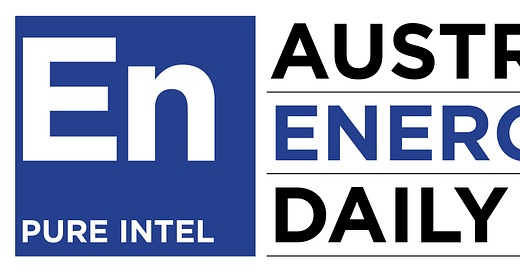Day 16: 'Sticks and levers'
An introductory weekday newsletter from Schwartz Media. Counting the days since Australia had an energy policy.

Good morning and welcome to day 16.
Today in summary: Prime Minister Scott Morrison and Energy Minister Angus Taylor talked up the “sticks and levers” they could use to bring down power prices – including a royal commission into energy; Europe’s emissions trading scheme is finally starting to bite – more than a decade after it kicked off; and Federal Labor stepped out of line with Victorian Labor on fracking.
— Charis
Today’s policy spin level: 🌪
In two separate interviews with shock jock Alan Jones, Prime Minister Scott Morrison and Energy Minister Angus Taylor talked up the “sticks and levers” they’re willing to pull out to bring down power prices. Morrison said he was putting the power companies on notice that a royal commission was on the table, along with other already announced interventionist measures. Taylor said the government would do “whatever we had to…whatever levers we have to pull” to get down prices, but wouldn’t be drawn on Jones’ pleading for Australia to pull out of the Paris agreement. Opposition leader Bill Shorten quickly backed in the idea of a royal commission, but said it would need to explore the impact of privatisation on power prices.
Carbon prices are rising in Europe, a decade after the European Union introduced its emissions trading scheme. US think tank Carbon Tracker predicts carbon prices could hit €50 a tonne in 2020, speeding up the closure of coal-fired power plants.
Less than a week after Victorian Labor reaffirmed its commitment to a ban on the exploration and development of onshore gas, federal Labor leader Bill Shorten said the states needed to reconsider their moratoriums on conventional gas exploration. Shorten’s comments came after Federal Labor yesterday announced a suite of new gas policy measures promising market interventions linked to prices instead of just supply shortfalls.
Geopolitics
As US President Donald Trump and his Canadian counterparts come to blows over a new North American Free Trade Agreement, energy sector experts are watching closely for the implications for international energy trade. The US is a net importer of gas from Canada, with Canada supplying 10% of gas and 20% of crude oil used in the US Energy security expert Jude Clement says unless the US and Canada strike a favourable deal Canada will look to Asia for more of its trade, ultimately giving the US less power in the global energy market.
Forbes
The Commentariat
Bill Shorten’s gas plan is part of the race to the bottom in energy policy given gas prices have actually been running consistent with longer term trends of late, writes The Australian Financial Review’s Matthew Stevens.
“To be fair to Shorten his plan has to be as stupid as it is because the Coalition has moved so far down the track of market intervention. Scott Morrison designed a big stick. Now Shorten has to pick up an even bigger one.”
Australia should formally withdraw from the Paris agreement, writes The Australian’s Judith Sloan. She says it was a bad deal, ill-suited to the nature of our electricity system and our abundance of fossil fuels.
“To commit to a cut of between 26 and 28 per cent by 2030 from a base of 2005 was madness… The advisers from Treasury could have been out to lunch at the time, although another possibility is that they are also economically illiterate virtue-signallers. At the very least, the exemption of our emissions-intensive, trade-exposed enterprises (the so-called EITEs) should have been taken into account.”
This is an introductory service while we’re building a comprehensive daily paid online publication, coming in early 2019.
We’re not here to take sides, simply to cut through the noise, and help you make sense of the emerging policy and market trends you need to be across. We call it pure intel. You can read more about us here.


